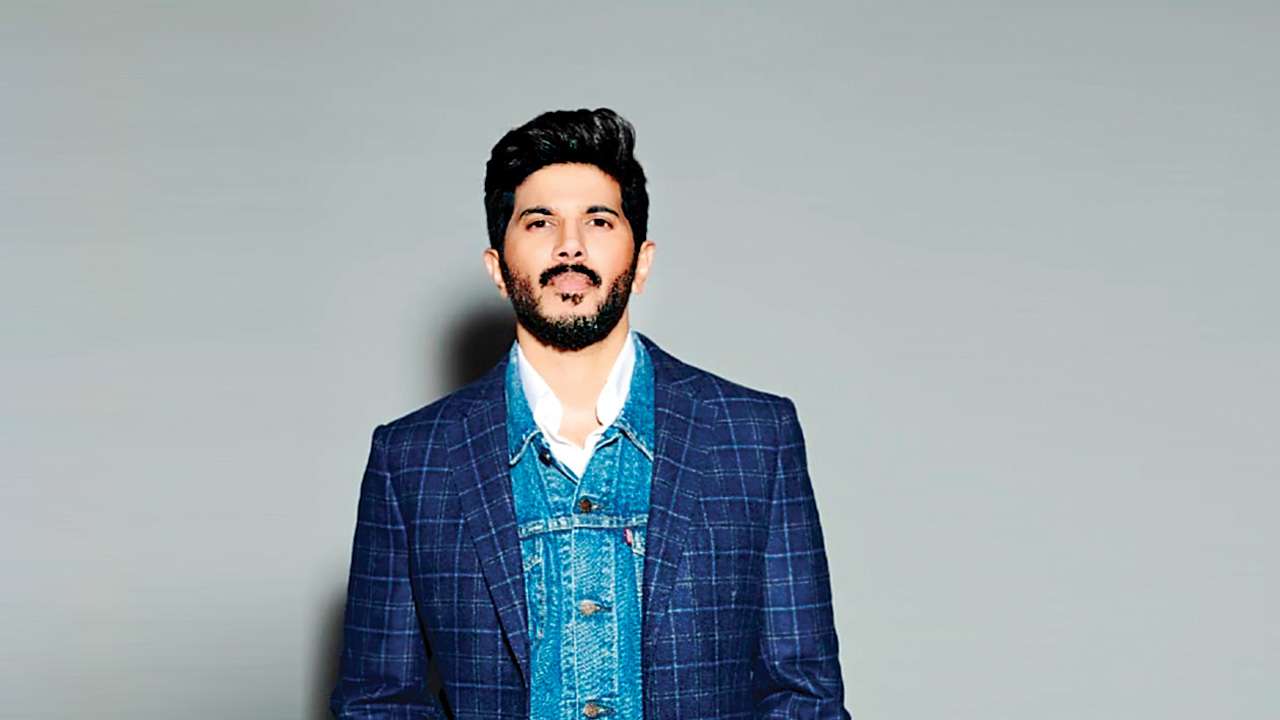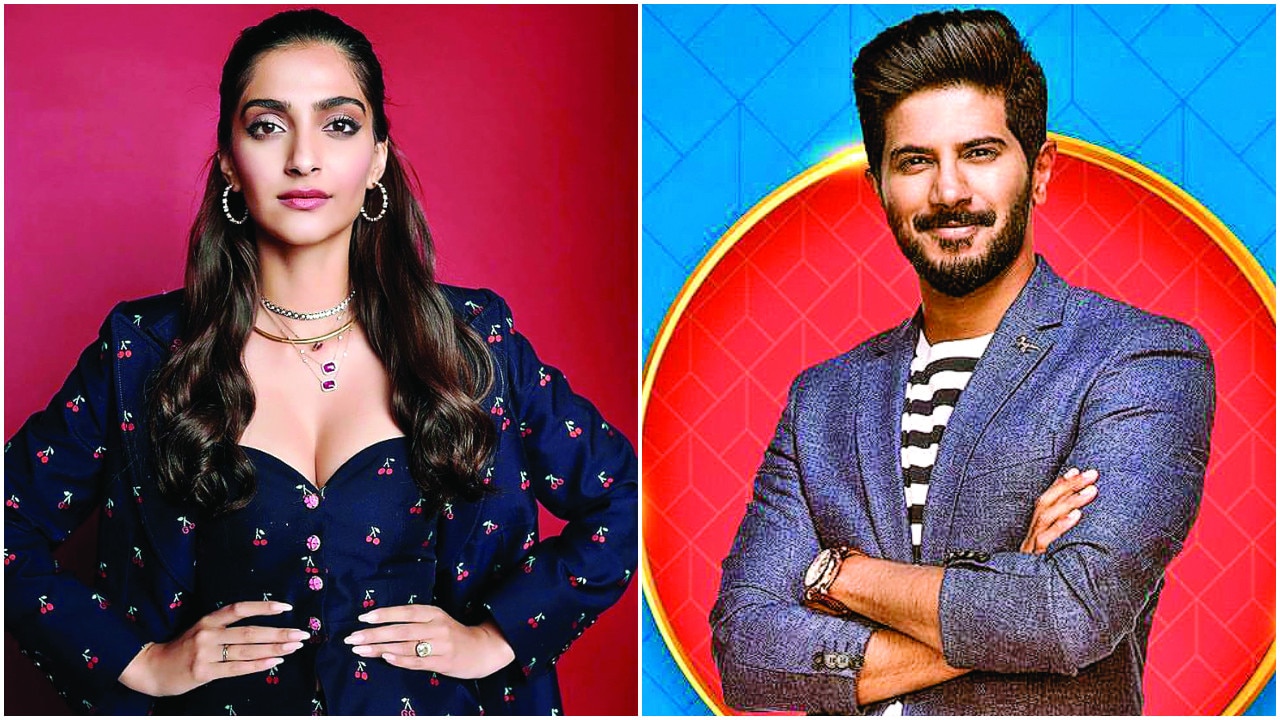‘Sonam K Ahuja has a bigger fan base, more people will watch the film’: Dulquer Salmaan
Says Malayalam superstar Dulquer Salmaan, who will be seen in his second Bollywood film after Karwaan

Dulquer Salmaan Dulquer Salmaan
He made his Bollywood debut with Karwaan alongside Irrfan last year. While the movie was critically acclaimed, it did not exactly fare well at the box office. Now, Malayalam superstar Dulquer Salmaan, who got rave reviews for his maiden Hindi outing, is gearing up for his next, The Zoya Factor. Based on Anuja Chauhan’s book by the same name, the movie will see him play a cricket captain. The day we met the actor, he had come straight from the airport, having flown in from Kerala. The 33-year-old opened up about his role in the film, how the market since the time his superstar father Mammootty did Hindi movies has changed for South actors, and why he has no qualms being part of a project that revolves around the female lead.
You made your Bollywood debut with Karwaan, which was not a mainstream commercial film...
(Cuts in) Yes, but, I have done stuff like that in other languages, too. When I hear different ideas, I gauge how much I like the script and the concept. I don’t particularly think how big or commercially viable the film is. If there is honesty in an idea, I like to do it. I wasn’t planning on entering any industry in that sense. Even OK Kanmani (2015) for Mani Ratnam was a small Tamil film. I look at content. The Zoya Factor has great content, which is also commercial. Even in Malayalam, some films are small and not mainstream, while the others are. I try to balance it out. I go by gut instinct. I don’t think too much about a debut film. If it’s good and people like it, they will like you. If they don’t like the movie, they won’t like the performance either.
Was it disappointing when Karwaan didn’t work at the box office?
No, we were not pitching it like a big film. It was a small sweet idea and we never expected it to do commercial film numbers. But, it was received well, and critically liked. It did decent numbers, we were all happy — not shocked or surprised. It has got a lot more love now when it released on a digital platform recently.
In The Zoya Factor, you are opposite Sonam K Ahuja, who is a big name in Bollywood. Didn’t you have apprehensions that the film would be more about her than you?
No, I don’t mind. I did Mahanati (Telugu) with Keerthy Suresh, which is the biopic of South actress Savitri. The film is only about the girl, but I loved that my character had so much to do. He was kind of grey, almost negative in some scenes. Sometimes, I look at how good the project, as well as my role, are. Finally, the movie is the hero. If it does well, viewers will watch it and in turn, I will be seen. Sonam has a bigger fan base, so more people will watch the movie and I will be introduced to more audiences. So, I don’t take it negatively. I think it’s a plus.
 Sonam K Ahuja and Dulquer Salmaan
Sonam K Ahuja and Dulquer Salmaan
What prompted you to sign the movie, to begin with?
I liked my character. I felt there was lot of scope for me to perform. I’ve never done a sports film before, it’s the first time I’m playing an athlete of any kind, so that was interesting. There’s a nice graph to it. Sonam’s and my character are opposites — she believes in luck and he believes in hard work. I liked all that. I felt it’s different from what I’ve done.
Did you read the book before signing the film?
No, I hadn’t, though I had it in my bookshelf. When they signed me, they said if you haven’t read the book, don’t. Because we want you to hear the screen adaptation. So, I read it after hearing the script initially. It is more detailed. It’s good that I didn’t read it before.
How interested are you in cricket?
You can’t ignore it in India. I have grown up around it. Street cricket is happening everywhere. I shifted from Kochi to Chennai when I was seven and the first thing I saw was kids playing cricket all the time. I made a lot of friends in the neighbourhood like that. And even in school, the sport was big. I went to college in America and there were a lot of Indians, Pakistanis and Bangladeshis. It was nice to get together, watch cricket and support different teams.
Is your role fashioned on any cricketer?
No, we have not based it on any cricketer, but in Anuja’s writing there are some glimpses of MS Dhoni and Virat Kohli. My character’s got qualities of the best captains. The production got me a lovely coach and I would train with him when I was in Mumbai. Even when I would go to Kochi for my Malayalam film’s shoot, the coach would come down there and we would practise.
Several South superstars, including your father Mammotty, have forayed into Bollywood, but they haven’t been able to sustain. What do you think is the reason?
What happens with us is all of us come from a core market — I am established in Malayalam and somewhat in Tamil. So, it’s about how you weigh your options. If you have better scripts there, you do them. It all depends on what comes your way.
And sometimes, it’s difficult to say no to the progress you’ve made there. You can’t ignore that. Even now, if I take a long gap from Malayalam films, that can affect the progress I’ve made for so many years. So, that priority has to be there. When I do a film from another language, I try to find a movie that can be shot in two months. I don’t know who to compare myself with because I don’t know other actors who are juggling many industries.
Besides, the market has changed a bit now. It has become bigger, the number of screens has increased, there is OTT platform, worldwide markets, so it has helped us grow in terms of size, budget and viewership. You can push the film around the country even if it’s subtitled. We released Bangalore Days (his superhit Malayalam film) with subtitles across South and some stations in Mumbai and Delhi. It got that viewership. That is possible now. There are a lot of Malayalis everywhere, which was not the case earlier.
Prabhas has just made his Bollywood debut with Saaho...
Yeah, but that’s a bilingual movie, so, he’s not losing his focus there. It’s when you completely step away that it gets tricky. But I am trying to balance it.